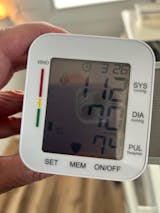







Hibiscus Tincture
Pairs well with
Hibiscus Tincture is a vibrant and refreshing herbal extract celebrated in traditional wellness practices for its ability to support heart health and circulatory balance. This tincture offers a natural way to maintain cardiovascular wellness and overall vitality.
How it works
- Supports healthy blood flow and circulatory function
- Promotes cardiovascular balance and overall heart wellness
- Contributes to vascular tone and resilience
- Provides natural antioxidant support for cellular health
- Add vibrant herbal support to your cardiovascular routine.
These statements have not been evaluated by the Food and Drug Administration. This product is not intended to diagnose, treat, cure, or prevent any disease.

Hibiscus Tincture







